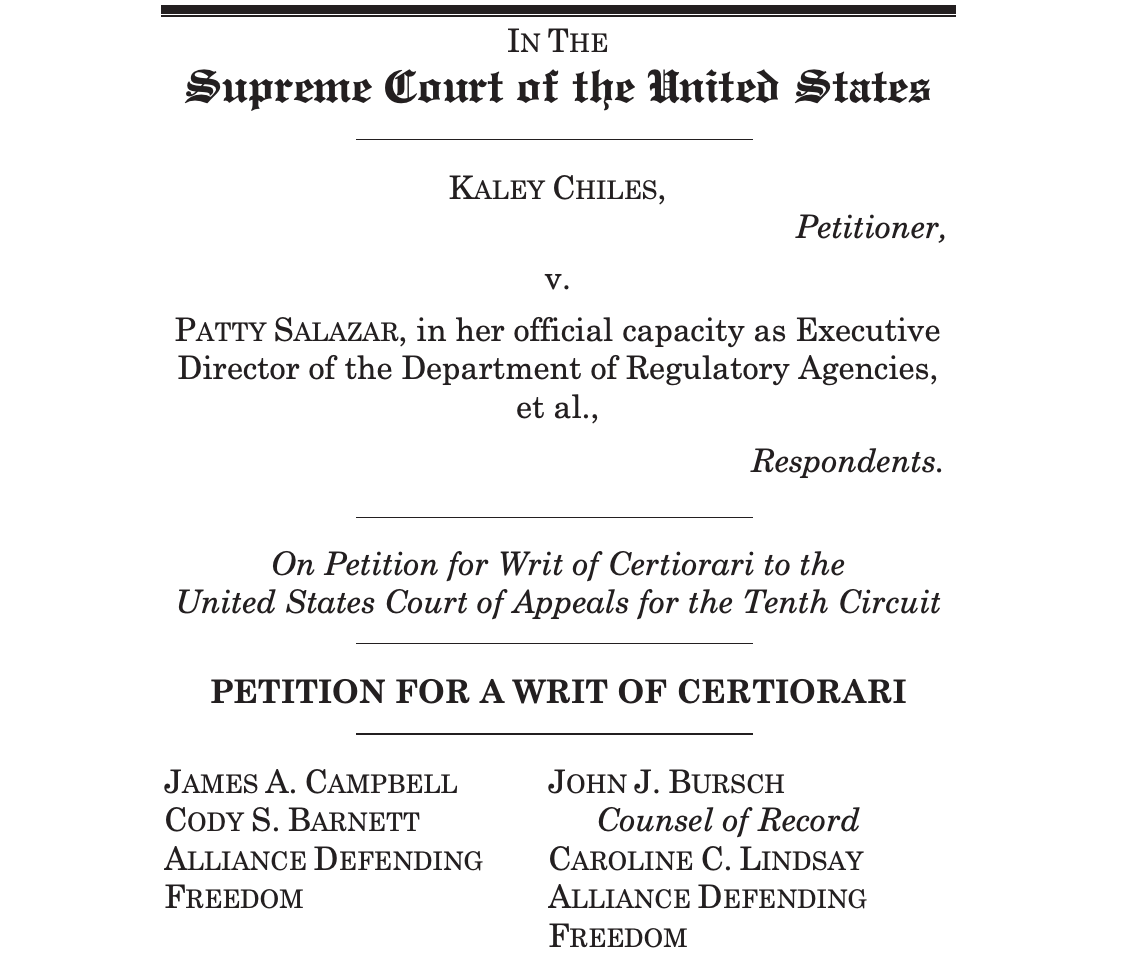SCOTUS takes up challenge to conversion therapy ban aimed at protecting LGBTQ kids
A Christian therapist sued over Colorado's ban on efforts to change minors' sexual orientation or gender identity. Also: Today at the Post. And, for paid subscribers: Closing my tabs.
The U.S. Supreme Court on Monday took up a case challenging Colorado's ban on conversion therapy for minors, after having previously turned down many other similar challenges in the past.
The law, which protects against efforts to change a minor's sexual orientation or gender identity, was upheld last year by the U.S. Court of Appeals for the Tenth Circuit on a 2-1 vote.
Alliance Defending Freedom is representing the Christian counselor, Kaley Chiles, and their petition for review was explicit about Chiles’s intent here.
It was also notable that the court took up the case as it is still considering the challenge from trans kids, their families, and medical providers to state laws restricting gender-affirming medical care — puberty blockers and hormone therapy — for transgender minors.
Here is the description of the case from Chiles’s lawyers:
But, Chiles lost below — at the district court and on appeal at the Tenth Circuit:
And yet, Chiles sought and at least four justices voted for review on the following question:
On Monday, the Supreme Court agreed to take up that question — which could have dramatic effects for existing protections for LGBTQ children in about half of the country, according to the Movement Advancement Project.
This is already an alarming sign.
As the Tenth Circuit explained, in a 2-1 decision by Judge Veronica Rossman, “The [Minor Conversion Therapy Law] does not regulate expression. It is the practice of conversion therapy—not the discussion of the subject by the mental health provider—that is a “[p]rohibited activit[y]” under the MCTL.“
Later, in conclusion, Rossman, a Biden appointee, explained further the speech-conduct distinction at issue here.
“The MCTL incidentally involves speech because an aspect of the counseling conduct, by its nature, necessarily involves speech. By regulating which treatments Ms. Chiles may perform in her role as a licensed professional counselor, Colorado is not restricting Ms. Chiles’s freedom of expression,” Rossman wrote. “In other words, Ms. Chiles’s First Amendment right to freedom of speech is implicated under the MCTL, but it is not abridged.”
She was joined in this opinion by Judge Nancy Moritz, an Obama appointee.
Judge Harris Hartz, a George W. Bush appointee, dissented, writing that “a restriction on speech is not incidental to regulation of conduct when the restriction is imposed because of the expressive content of what is said. And that is the type of restriction imposed on Chiles.”
In opposing the Supreme Court taking up the case, here is how Colorado framed the question:
The Supreme Court, however, took the question as Chiles’s ADF lawyers presented it — a concerning, though not definitive, sign.
The case was one of two granted by the Supreme Court this morning.
They will be heard in the next term, which begins in October.
Over at the Post
Semafor’s Max Tani reported Monday morning that Ruth Marcus, longtime Washington Post columnist, resigned after chief executive Will Lewis spiked a column of hers that was critical of owner and billionaire Jeff Bezos’s new policy that the opinion pages at the Post would advocate for “personal liberties and free markets.“
In resigning, Marcus — who regularly wrote about the Supreme Court — wrote, per Tani, “I have cherished my four decades at the Post — as a reporter, deputy national editor, editorial writer, deputy editorial page editor and columnist. … Will's decision to not to run the column that I wrote respectfully dissenting from Jeff's edict — something that I have not experienced in almost two decades of column-writing — underscores that the traditional freedom of columnists to select the topics they wish to address and say what they think has bee dangerously eroded.“
Good for Ruth. Awful for the Post and democracy.
Closing my tabs
This Monday morning, these are the tabs I am closing:









